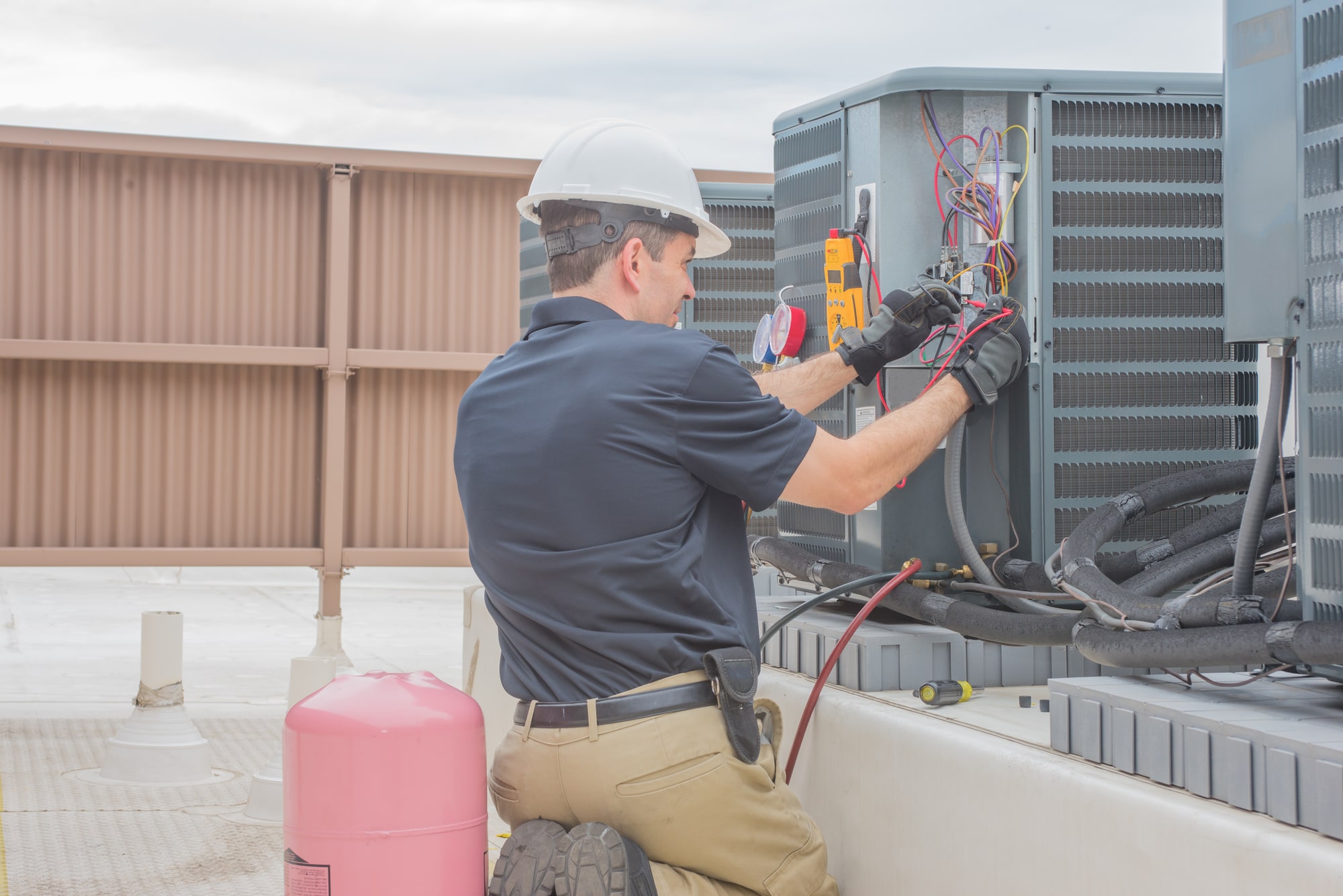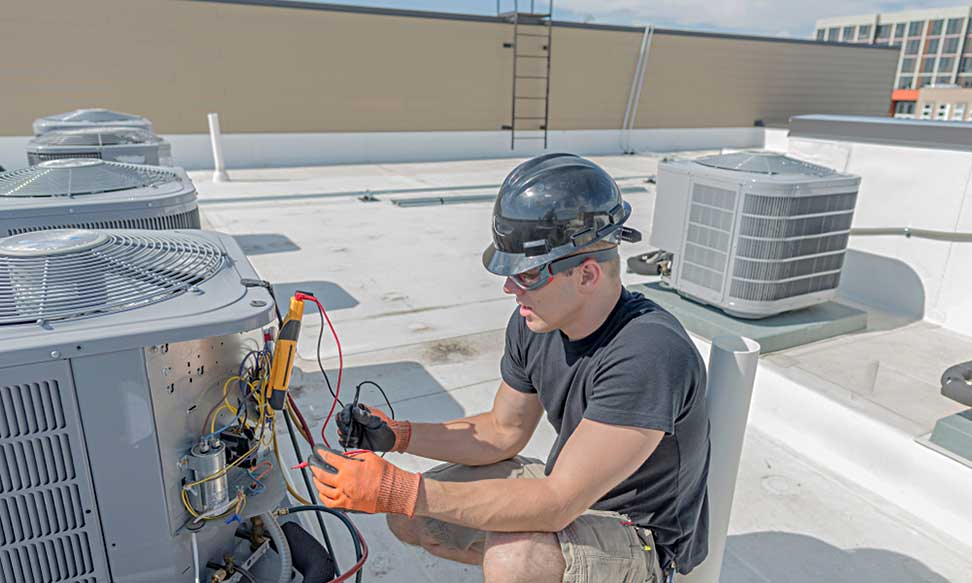The Importance of Cooling And Heating Installation: Secret Factors To Consider for a Comfortable Indoor Setting
The setup of a cooling and heating system is a vital part in attaining an energy-efficient and comfy indoor environment. The process includes a number of nuanced factors to consider that go past merely choosing a device off the rack. Variables such as the suitability of the system for particular structure demands, correct sizing to circumvent ineffectiveness, and the expertise of professionals for a top quality installment play critical roles. Furthermore, the adoption of sophisticated modern technologies can significantly enhance system efficiency. Yet, understanding these complexities is just the start of ensuring optimum interior convenience. What are the important aspects that dictate effective cooling and heating implementation?
Choosing the Right System

When selecting a cooling and heating system, it is vital to review the capability called for to effectively heat or cool the area without exhausting the system, which can bring about raised wear and operational prices. Consulting with an expert cooling and heating contractor can provide important insights into selecting a system that aligns with both the awaited use and the architectural style patterns of the building.
Furthermore, thinking about the combination of wise technology can enhance system monitoring and surveillance, supplying better control and possible expense savings. By carefully examining these aspects, one can guarantee the selection of a HVAC system that not just satisfies prompt demands however also adds to lasting functional sustainability and owner convenience.
Comprehending Energy Performance
Comprehending energy efficiency is essential when taking into consideration an a/c setup, as it straight influences both the ecological impact and the operational prices of the system. High-efficiency a/c systems are developed to use much less energy to accomplish the same degree of comfort as much less effective versions, consequently reducing energy bills and advertising sustainability. The effectiveness of a HVAC system is normally indicated by scores such as SEER (Seasonal Power Efficiency Proportion) for ac unit or AFUE (Annual Gas Application Effectiveness) for furnaces. Greater rankings represent higher performance and decreased power usage.

Buying an energy-efficient HVAC system not only converts to cost financial savings however also contributes favorably to ecological conservation by lowering greenhouse gas emissions. In addition, several jurisdictions provide incentives or discounts for the installment of high-efficiency systems, additionally improving their financial allure.
When assessing energy performance, think about advanced attributes such as variable speed motors, wise thermostats, and zoning abilities. These developments improve the system's ability to get used to differing demand, consequently enhancing power use. It is crucial to seek advice from a/c specialists who can provide insights right into the most effective alternatives customized to particular environment conditions and usage patterns, making certain maximum performance and comfort.
Importance of Appropriate Sizing
)
On the other hand, a small cooling and heating system will struggle to get to the desired temperature, especially during extreme weather condition conditions. This can cause constant operation, causing greater energy expenses and prospective getting too hot of system elements. In addition, insufficient sizing can cause inconsistent temperature level circulation, triggering particular areas of a structure to be too cool or as well warm.
To accomplish the appropriate sizing, a comprehensive load computation is necessary. This includes analyzing various aspects such as the building's square footage, insulation levels, home window types, and neighborhood climate conditions. By properly establishing the home heating and cooling requirements of a room, cooling and heating experts can advise systems that make sure reliable operation, reduced energy intake, and enhanced interior comfort.

Making Sure High Quality Installment
A seamless HVAC installment is the keystone of a system's durability and performance. This specialist need to have comprehensive Recommended Site expertise of diverse systems and be proficient at assessing the details requirements of the building.
Proper installment goes past mere positioning of equipment. It entails accurate calibration to ensure optimum air flow, efficient power usage, and uniform temperature level circulation. This includes exact ductwork setup, ensuring links are protected and leak-free, which is important for preserving system performance and indoor air top quality.
Moreover, the implementation of sophisticated diagnostic devices during setup can detect possible issues early, stopping pricey repair services and extending the life expectancy of the system. The service provider ought to likewise make sure that all parts are suitable and that the system abides by local building regulations and policies.
Normal Maintenance Practices
Once the foundation for a high-performing heating and cooling system is developed with top quality installment, the emphasis must move to routine upkeep methods to guarantee ongoing ac equipment performance and integrity. Regular maintenance not just prolongs the life expectancy of the system but also enhances indoor air top quality, decreases energy consumption, and avoids expensive repair services. Crucial upkeep jobs include on a regular basis transforming air filters, cleaning evaporator and condenser coils, and evaluating the system for obstructions or leaks.
This straightforward task can substantially improve air circulation and system efficiency. Additionally, professional service technicians ought to evaluate the system yearly, examining for refrigerant degrees, electrical connections, and total system performance.
Focus to ductwork is also important; sealing and cleaning up air ducts consistently avoids home hvac maintenance air loss and contamination. Executing a maintenance schedule guarantees that minor problems are addressed before they rise, securing the system's functional honesty. By sticking to these maintenance techniques, property owners can enhance their cooling and heating system's capability and keep a comfortable indoor environment year-round.
Conclusion
a/c setup plays an essential duty in making certain indoor convenience and enhancing energy performance. lawn irrigation installation Brownwood TX. By picking an appropriate system customized to specific building requirements, comprehending power efficiency, and making certain appropriate sizing, inadequacies can be reduced. The involvement of knowledgeable service providers warranties quality installation, while the assimilation of advanced innovations enhances system efficiency and tracking. Normal maintenance is necessary for extending system life expectancy and improving interior air high quality, therefore promoting a sustainable and comfortable living or functioning setting.
Several types of A/c systems are available, including split systems, hybrid systems, duct-free systems, and packaged heating and air systems, each with distinctive benefits and limitations.
Recognizing energy performance is important when thinking about a Cooling and heating installation, as it directly affects both the environmental footprint and the operational expenses of the system. The performance of a Heating and cooling system is normally suggested by rankings such as SEER (Seasonal Power Performance Ratio) for air conditioners or AFUE (Yearly Fuel Application Efficiency) for heaters (Commercial HVAC contractor in Brownwood TX).Once the structure for a high-performing A/c system is developed with top quality installation, the emphasis needs to move to regular maintenance practices to ensure continued effectiveness and dependability. In addition, specialist specialists ought to inspect the system every year, inspecting for cooling agent degrees, electrical connections, and total system performance